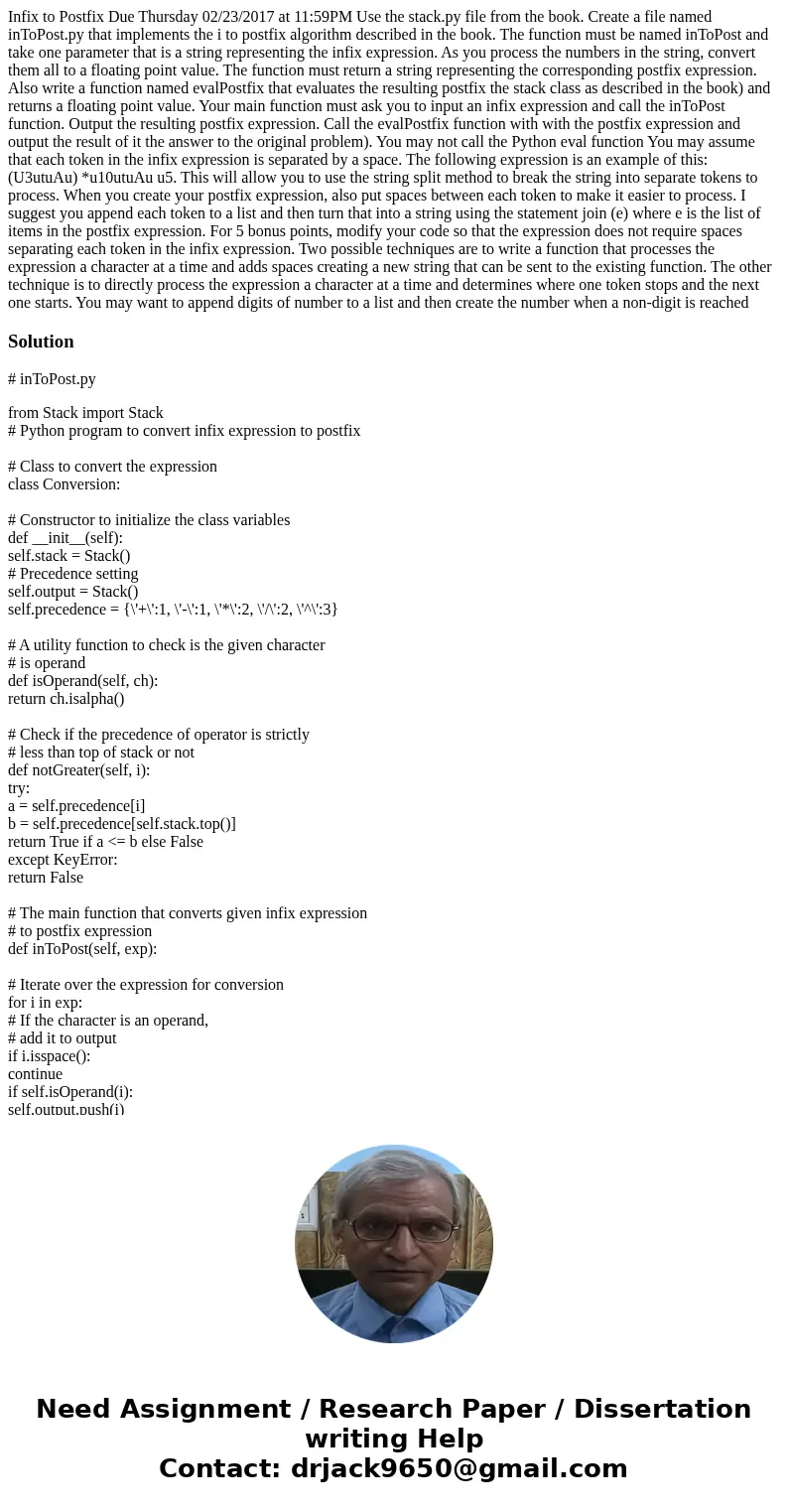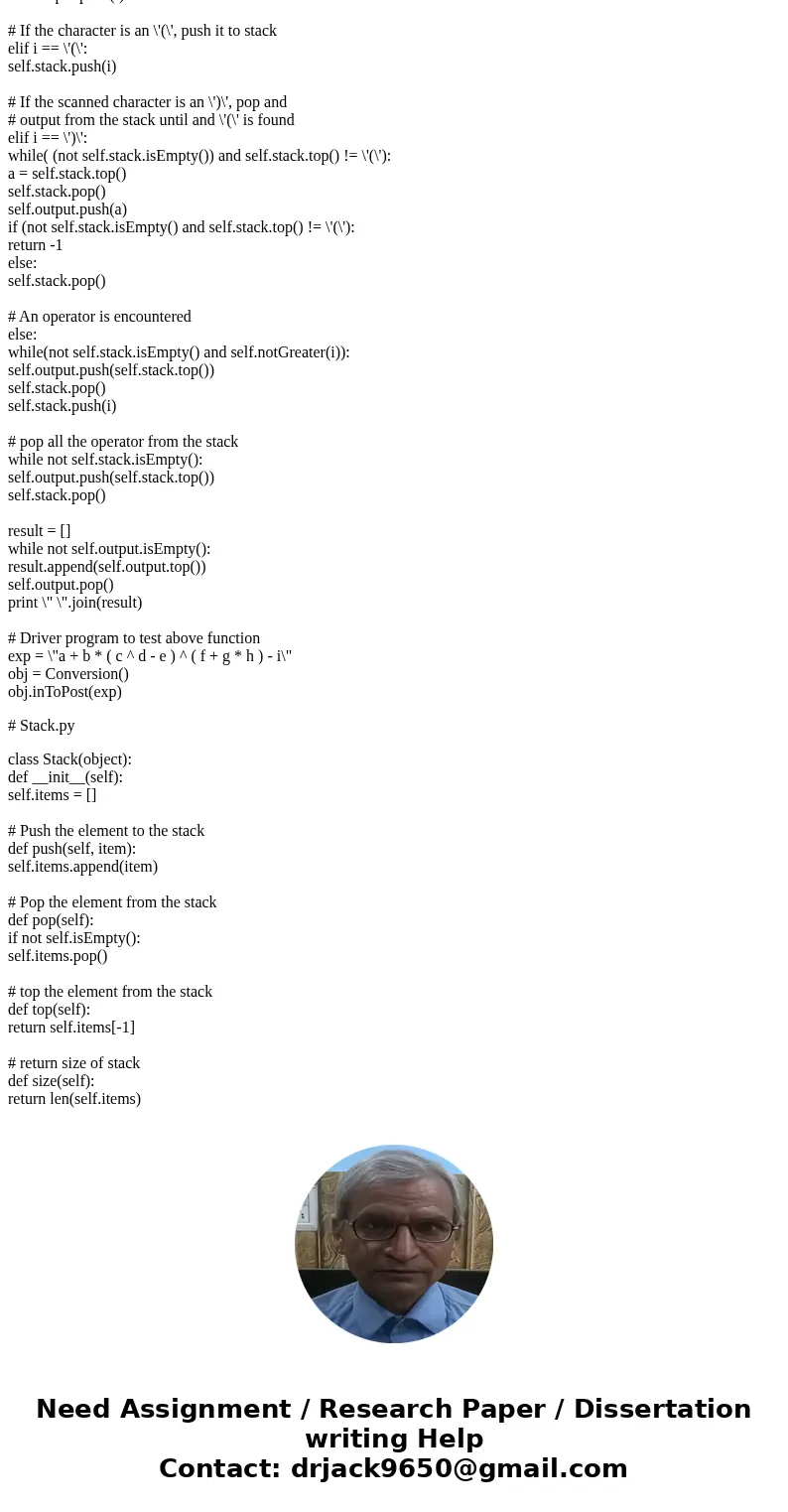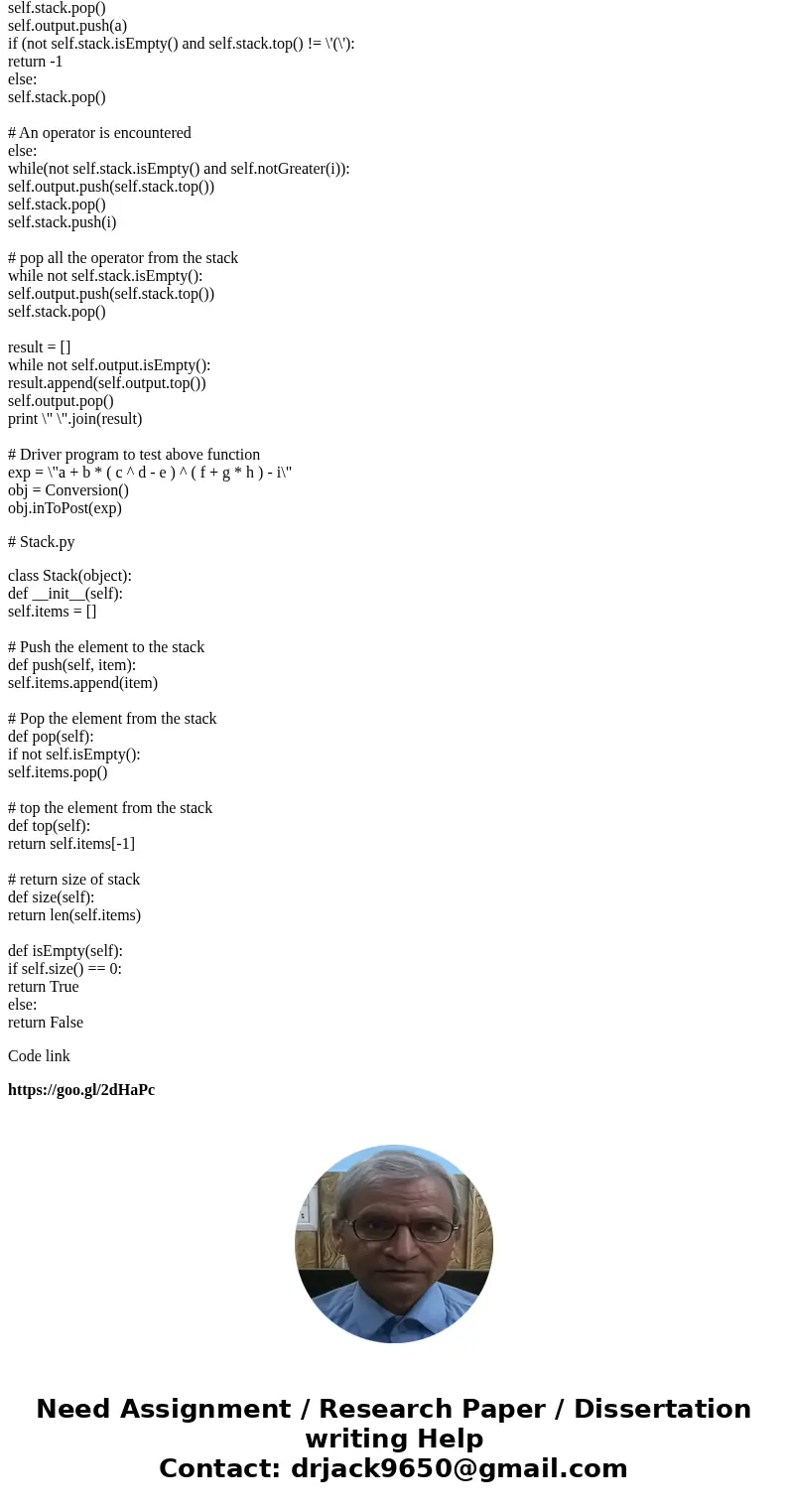Infix to Postfix Due Thursday 02232017 at 1159PM Use the sta
Solution
# inToPost.py
from Stack import Stack
# Python program to convert infix expression to postfix
# Class to convert the expression
class Conversion:
# Constructor to initialize the class variables
def __init__(self):
self.stack = Stack()
# Precedence setting
self.output = Stack()
self.precedence = {\'+\':1, \'-\':1, \'*\':2, \'/\':2, \'^\':3}
# A utility function to check is the given character
# is operand
def isOperand(self, ch):
return ch.isalpha()
# Check if the precedence of operator is strictly
# less than top of stack or not
def notGreater(self, i):
try:
a = self.precedence[i]
b = self.precedence[self.stack.top()]
return True if a <= b else False
except KeyError:
return False
# The main function that converts given infix expression
# to postfix expression
def inToPost(self, exp):
# Iterate over the expression for conversion
for i in exp:
# If the character is an operand,
# add it to output
if i.isspace():
continue
if self.isOperand(i):
self.output.push(i)
# If the character is an \'(\', push it to stack
elif i == \'(\':
self.stack.push(i)
# If the scanned character is an \')\', pop and
# output from the stack until and \'(\' is found
elif i == \')\':
while( (not self.stack.isEmpty()) and self.stack.top() != \'(\'):
a = self.stack.top()
self.stack.pop()
self.output.push(a)
if (not self.stack.isEmpty() and self.stack.top() != \'(\'):
return -1
else:
self.stack.pop()
# An operator is encountered
else:
while(not self.stack.isEmpty() and self.notGreater(i)):
self.output.push(self.stack.top())
self.stack.pop()
self.stack.push(i)
# pop all the operator from the stack
while not self.stack.isEmpty():
self.output.push(self.stack.top())
self.stack.pop()
result = []
while not self.output.isEmpty():
result.append(self.output.top())
self.output.pop()
print \" \".join(result)
# Driver program to test above function
exp = \"a + b * ( c ^ d - e ) ^ ( f + g * h ) - i\"
obj = Conversion()
obj.inToPost(exp)
# Stack.py
class Stack(object):
def __init__(self):
self.items = []
# Push the element to the stack
def push(self, item):
self.items.append(item)
# Pop the element from the stack
def pop(self):
if not self.isEmpty():
self.items.pop()
# top the element from the stack
def top(self):
return self.items[-1]
# return size of stack
def size(self):
return len(self.items)
def isEmpty(self):
if self.size() == 0:
return True
else:
return False
Code link
https://goo.gl/2dHaPc



 Homework Sourse
Homework Sourse